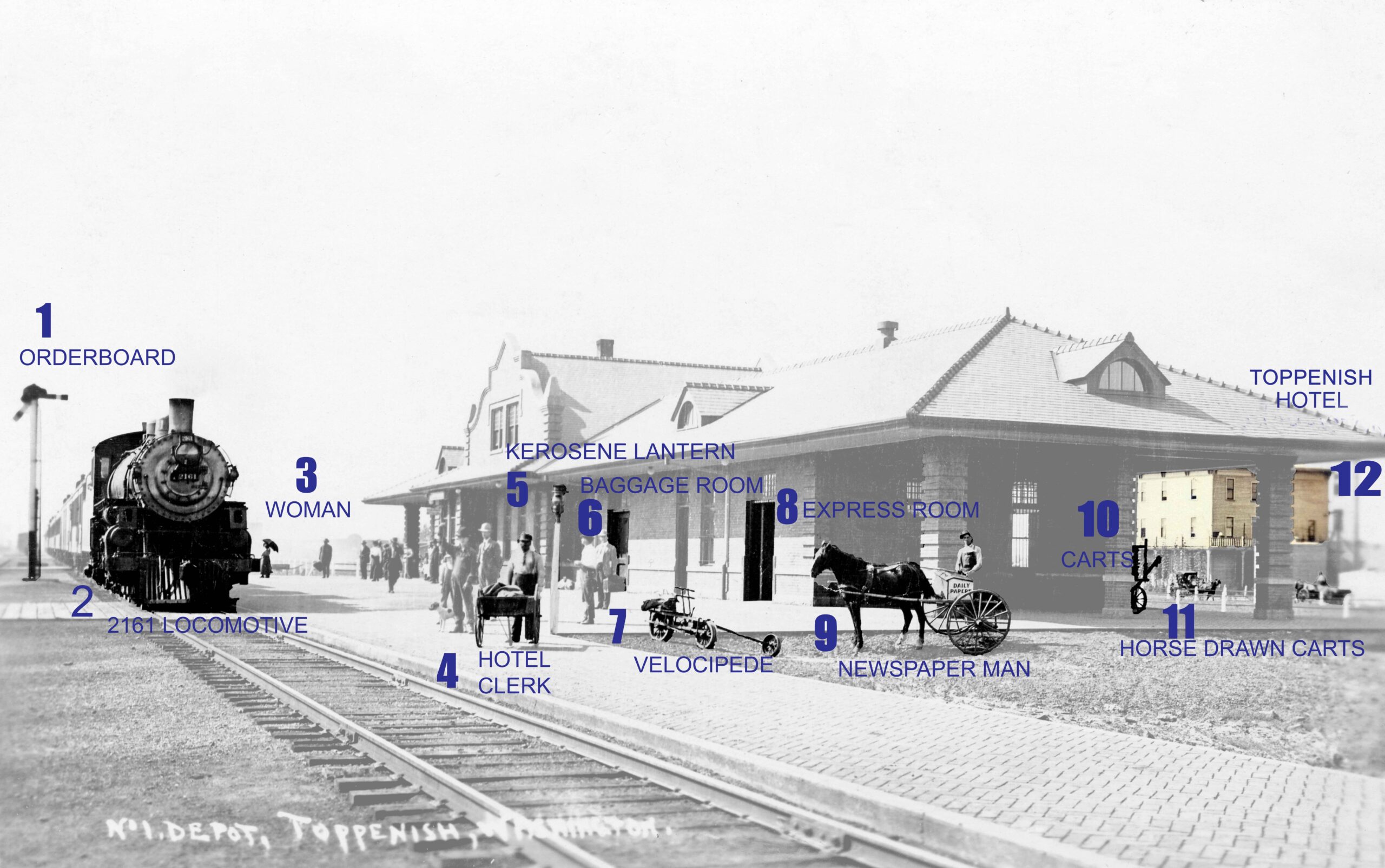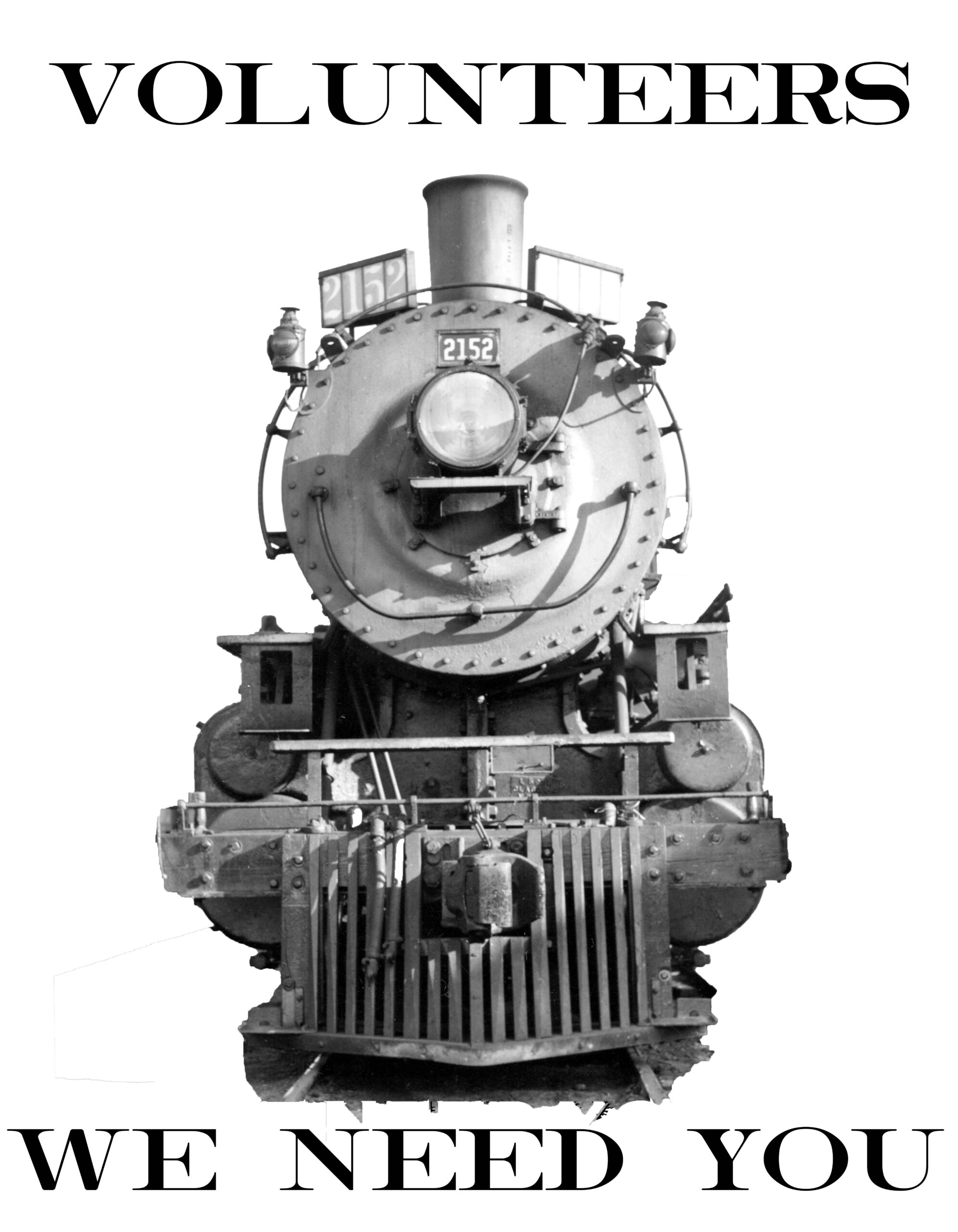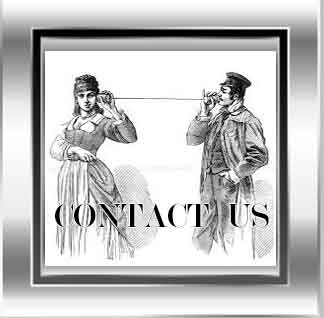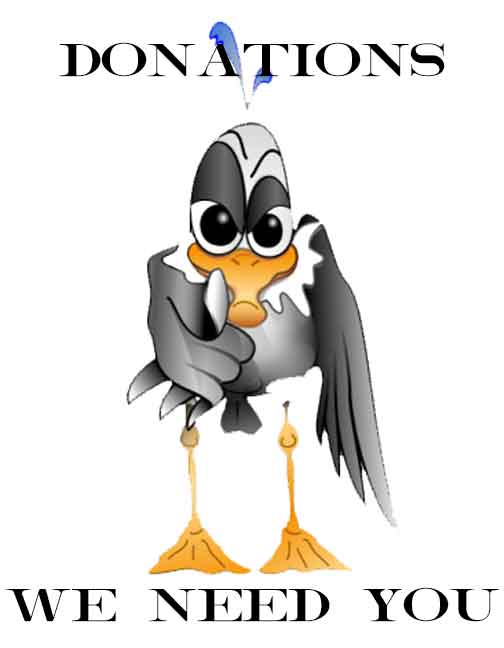DEPOT PICTURE EXPLAINED

From Left to right
-
TRAIN ORDERBOARD: blade at 7 o’clock is for train pulling into station. It indicates current train order is valid and none needs to be picked up. The one at 3 o’clock (straight out) position indicates any train going in opposite direction needs to pick up new train order.
-
LOCOMOTIVE: Coming into the station is NP 2161, a sister locomotive to NP 2152, which is in our yard awaiting cosmetic restoration.
-
Note the long dress and the parasol on the lady just to the right of the locomotive. In the early 1900s ladies did not want to get a tan.
-
The porter with the wagon is well forward of the locomotive as the train is arriving and will still go another 150 feet forward to the spout which will deliver water into the tender. That will put the baggage car even with the location of the porter. The wagon is most likely from one of the three hotels within a block of the depot.
-
Just to the right of the porter note the white post with a kerosene platform light. There were two of these on the platform. The lights were discovered in the crawl space under the waiting room floor. One was restored and is located just to the left of the large blowup of this picture.
-
The door just to the right of the two men and the light is the baggage room door that leads into the room you are currently in.
-
The three wheeled vehicle is called a velocipede. The original depot velocipede was built around 1900 and was in use until the late 1950’s. Initially it was used to inspect the track. With the advent of motorized inspection vehicles it was used to ride up and down the railroad yard to fill the kerosene switch lamps.
-
The door just above the velocipede outrigger wheel leads to the “express room”. Railroads had replaced horses and wagons as a means of shipping packages. The room was initially used by the Northern Express until about 1918 when the government took control of all express companies as part of the war effort (WW I). The American Express Company was formed in an effort to enable shipments of goods anywhere in the country with one tag. In 1928 the Railway Express Agency (REA) was formed by the railroads and purchased the package movement portion of the business.
-
The horse drawn cart has the words “DAILY PAPER” on the box. The train in this picture arrived from Yakima each morning and the Yakima paper was shipped to Toppenish each day. The paper boy met the train and then distributed the paper to the local grocery stores and the subscribers. The Toppenish paper was published only once weekly.
-
One can visualize just the front end and a wheel at the right corner of the depot. This is a baggage cart used to move a traveler’s checked luggage and other materials from the baggage room to the train for shipment.
-
Note the horse and buggy just to the right of the baggage cart. When this picture was taken ca 1911, horse drawn vehicles were much more common than cars.
-
The building behind the horse and buggy is the annex to the Toppenish Hotel which burned in the late 1950s.





